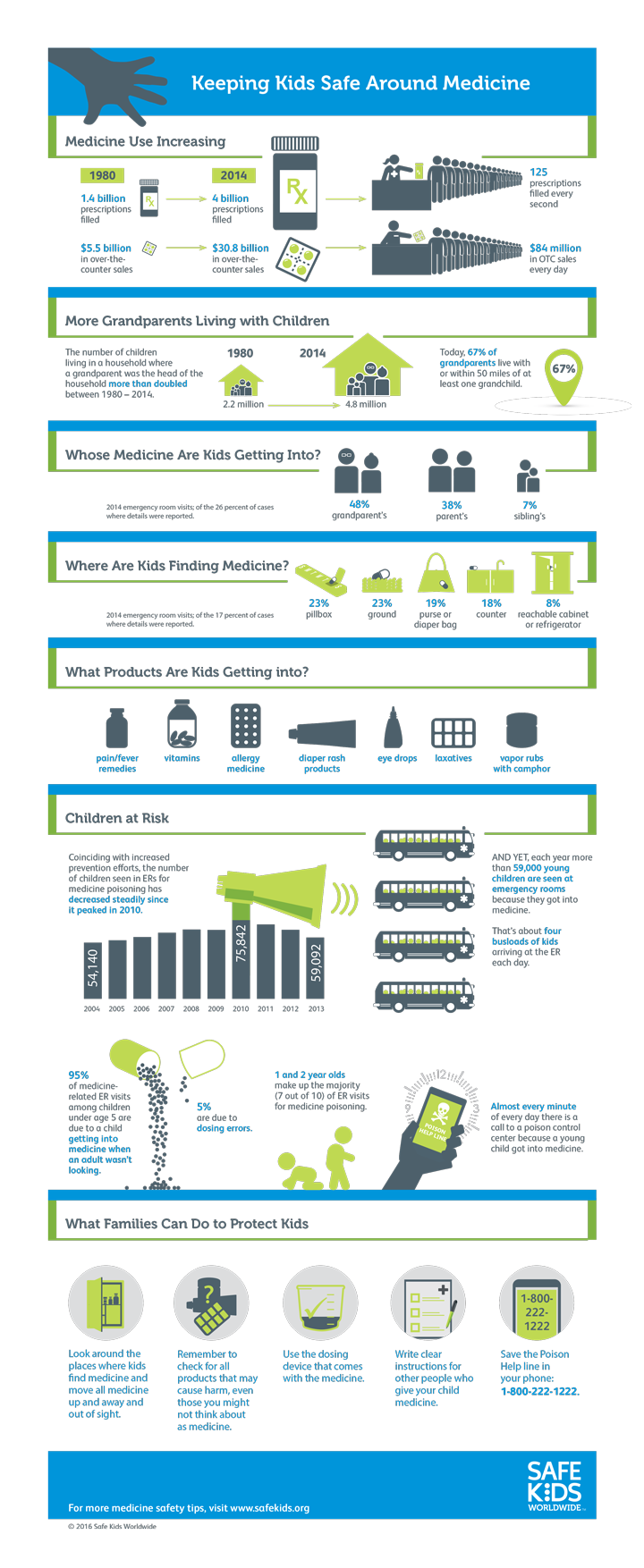Safe Medication
Storage & Disposal
Keep Your Loved Ones Safe
Over half of all people who have misused prescription pain relievers said they got them from a friend or relative for free. Proper storage and disposal of medications at home is critically important in the effort to decrease opioid misuse and overdoses. Unused or expired prescription drugs in your home need to be properly disposed of, or they might find a new one.
What Does Safe Medication Storage and Disposal Prevent?
Accidental Use
The number of poisoning deaths among children has doubled since 2000, with approximately 60,000 young children being brought to emergency rooms each year because they got into medicines that were left within reach. Nearly all of the additional deaths occurred among teens.
Environmental Damage
Medicines that enter the environment can have a negative impact on wildlife, especially fish and amphibians. Most wastewater treatment facilities cannot filter out many drugs. Treat our waterways and ecosystems with care – don’t rush to flush.
Intentional Misuse
One 2013 study findings showed that one in four teens had misused or abused a prescription drug at least once in their lifetime. Young people who have a family member on prescription opioids are more than twice as likely to overdose on pain meds. Teens’ primary sources for these drugs are not drug dealers – they are friends or home medicine cabinets.
Safe Medication Storage
It’s important to organize, secure, and keep track of all medicines. Some medicines, like prescription pain medications, have a “street value” and are stolen out of the cabinets of friends and family members.
- Take an inventory of the medicines you have in your home every six months.
- Check the expiration date on bottles or packages. Dispose of expired or unneeded medicines.
- Discard leftover prescription medicines from a previous illness or condition. You should never try to treat yourself (or anyone else) with an unused / old prescription medicine.
- Pick a storage location that is up high and out of sight, like a kitchen cabinet or shelf in a hallway closet. Keep medicines away from young children and pets who may put what they find in their mouths.
- Keep your medicines separate from those of your spouse or other family members to make it less likely for someone to take the wrong ones by mistake.
- Have good lighting near where you store your medicines to help you make sure you are taking the right medications. Never take medicines in the dark.
- Keep the medicine in the bottle it came in to easily access prescription information, such as what the medicine is, its dosage, and how often to take it. The label will also have the phone number of the pharmacy if needed.
- If you do use a weekly pillbox, keep the original bottles so that you can quickly access the dosing information generally printed on the bottle or packaging.
- Never mix different medicines in the same bottle. You or someone else might end up taking the wrong one by mistake.
- Keep the lids on your pill bottles tightly closed, because a cap can’t be child resistant if it’s not closed correctly.
Safe Medication Disposal
Thanks to the efforts of the Siskiyou County Sheriff’s Department, it is easy to safely dispose of medications no matter where you live. Below is a list of locations where you can anonymously drop off unwanted medications.
The Drug Enforcement Agency (DEA) also hosts a bi-annual Drug Take Back Day on the last Saturday of April and October each year, to raise awareness about medication safety and encourage citizens to help decrease the supply of dangerous and unwanted medications.
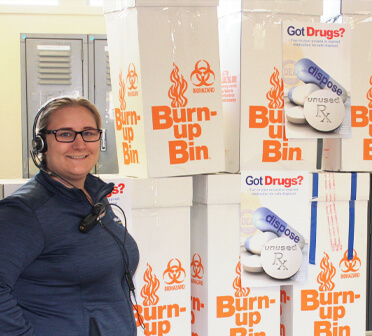
Burn Up Bin
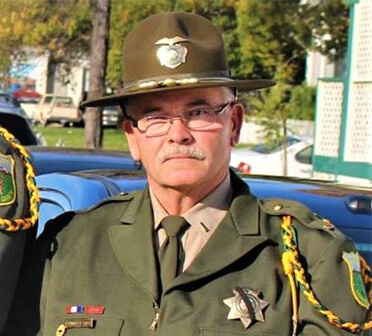
Officer Darrell Frost single handedly got the system of drop off boxes implemented around Siskiyou county.
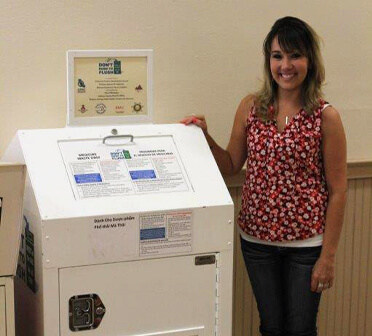
Drug Disposal Receptacle
Siskiyou County Prescription Drug Take Back Locations
All take back receptacles are available during regular business hours. Any questions about our Drug Take Back Program can be referred to the Siskiyou County Sheriff’s Office:
(530) 842-8303
- Tulelake Police Department
470 C Street
Tulelake, CA - Butte Valley Rural Health Clinic
610 W. Third Street
Dorris, CA - Happy Camp Sheriff’s Substation
30 4th Avenue
Happy Camp, CA
by appointment only - Dunsmuir City Hall
5902 Dunsmuir Avenue
Dunsmuir, CA - Mt. Shasta Police Department
303 N. Mt. Shasta Blvd
Mt. Shasta, CA - Weed Police Department
550 Main Street
Weed, CA
- Yreka Sheriff’s Office
305 Butte Street
Yreka, CA - Yreka Police Department
1400 Fairlane Road
Yreka, CA - Fort Jones Police Department
11219 N. Highway 3, Suite 3
Fort Jones, CA - Lake Shastina Police Department
16309 Everhart Drive
Weed, CA - Montague City Hall
230 S. 13th Street
Montague, CA
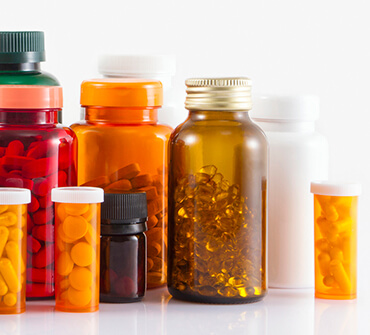
Accepted
- Prescription medications
- Nonprescription medications
- Vitamins
- Pet Medications
- Liquid medications
Not Accepted
- Needles
- IV Bags
- Schedule I Drugs (heroin, meth, etc)
How To Prepare Medicines for Drop Off, 1-2-3
1. Empty
At home, remove pills and other solid medications from containers and place them in a clear plastic zipper bag. Keep liquids and cream medications tightly sealed in their original containers.
2. Remove
Remove, mark out, or otherwise obscure personal information from medication containers to protect your personal information. Recycle containers from solid medications in your household recycling.
3. Drop Off
Bring your zipper bag and any liquids/creams to a Drop Off location and place in the bin – it’s that easy!
